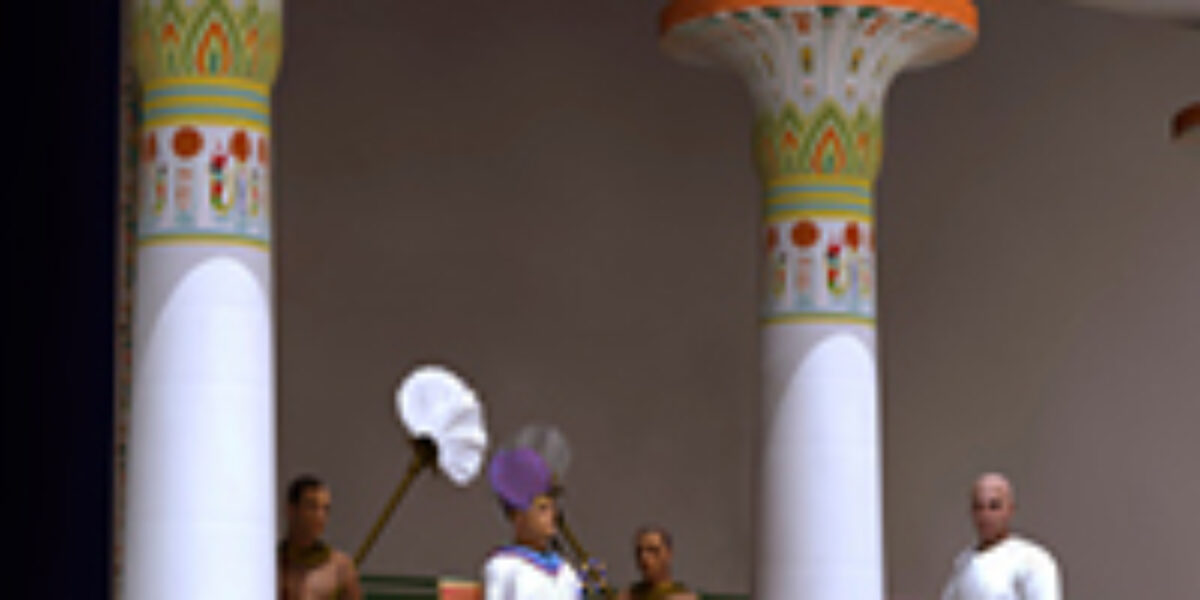Egypt played an important role in Israel’s history. Check out the different Egyptian rulers who guided the nation during these years.
Pharaoh is the title for the chief ruler of Egypt and comes from two Egyptian words that mean “great house.” To the pharaoh’s name was added other titles of honor, such as “Son of Re” (the Egyptian sun god) or “King of Upper and Lower Egypt.” About the time of Abraham, “pharaoh” meant “king,” so the Bible uses both these terms to refer to the ruler of Egypt. When the Egyptian king died, he was identified with Osiris, the god who died and overcame death, and was thought to rule in the world of the dead. Ancient pictures of the pharaohs often show them holding a symbol of power, such as a shepherd’s crook, a mace (a club-like weapon), or a curved sword. On the headpiece was a cobra snake symbol, which was supposed to protect the pharaoh from his enemies.
A number of Egypt’s pharaoh kings are mentioned in the Jewish Scriptures (Old Testament).
EGYPTIAN KINGS (PHARAOHS) IN THE BIBLE
- Unnamed Befriended Abraham and took Sarah into his household (Gen 12:14-20)
- Unnamed Put Joseph in charge of food supply in Egypt (Gen 41:37-57)
- Sety I (Sethos) Ruled 1291–1279 B.C. Possibly the “New King” (Exod 1:8) who was Pharaoh during the Hebrews’ time of slavery in Egypt (Exod 1–14)
- Rameses II Ruled 1279–1212 B.C. Followed Sety I and may have been the Pharaoh at the time of the Hebrews’ exodus from Egypt (Exod 1–14)
- Unnamed Father of King Solomon’s Egyptian wife (1 Kgs 3:1; 7:8)
- Shishak Ruled 945–924 B.C. Raided the Jerusalem temple during the reign of Rehoboam of Judah, but let King Jeroboam of Israel hide in his palace (1 Kgs 14:25,26; 2 Chr 12:2-9)
- So Ruled 727–720 B.C. This may have been Pharaoh Osorkon IV, who was sent a message by King Hoshea of Israel just before the Israelites rebelled against the king of Assyria
- (2 Kgs 17:1-4)
- Tirhakah Ruled 690–664 B.C. Called “King of Ethiopia” who battled with Assyria during the reign of King Hezekiah of Judah (2 Kgs 19:9; Isa 37:9)
- Neco Ruled 610–595 B.C. Killed King Josiah of Judah at Megiddo, replaced Jehoahaz with Jehoiakim as Judah’s ruler, and was defeated by King Nebuchadnezzar of Babylonia
- (2 Kgs 23:29-34; 2 Chr 35:20—36:4)
- Hophra Ruled 589–570 B.C. The prophet Jeremiah said Hophra would be captured by his enemy Nebuchadnezzar of Babylonia (Jer 43:6-13; 44:30)
- Other kings Little is known about the kings mentioned in 1 Kgs 11:14-22; 2 Kgs 18:21; 1 Chr 4:17-18




